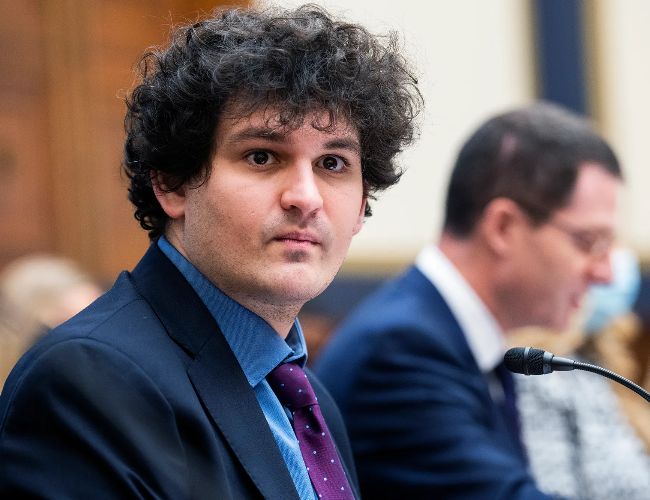[ad_1]
The stage is set for a federal judge to determine how long Sam Bankman-Fried may spend in prison. The U.S. Department of Justice and defense attorneys have now both filed their arguments, as well as statements from FTX creditors (from the prosecution) and Bankman-Fried’s family and friends (from the defense).
‘Emotional toll’
The narrative
Attorneys with both the defense and the prosecution have now filed their sentencing memos with the judge overseeing Sam Bankman-Fried’s case, arguing for their respective sentences. Alongside the briefs, the attorneys have also filed supporting letters from the people around FTX and Bankman-Fried, presenting emotional arguments on top of their legal reasoning.
Why it matters
Bankman-Fried will return to court next week for sentencing. The U.S. Department of Justice wants him in prison for at least four decades; the defense thinks a handful of years is a sufficient punishment (and that the DOJ’s recommendation is bonkers). Without trying to guess how a federal judge might approach this, the questions he might look at include Bankman-Fried’s conduct, how FTX’s customers fared and – of course – the evidence presented during the trial itself.
Breaking it down
District Judge Lewis Kaplan now has letters from Bankman-Fried’s family, former FTX employees, former FTX customers and various other parties when he rules on sentencing next week.
The defense and DOJ published various comments to try and convince the judge to support either a relatively light 6.5-year or lengthy 50-year sentence. Both are miles away from the 100-year sentence that the Presentence Investigation Report apparently suggested.
I wrote about the defense’s submissions a few weeks ago; the short version is Bankman-Fried’s attorneys argue he is remorseful and that his life is forever changed by FTX’s demise. He won’t be able to get a job again without the exchange hovering over him, the defense said.
Tough, the DOJ said last Friday. In its response (which the defense later called a “disturbing” recommendation), the DOJ lambasted the 32 year old, saying he deliberately broke the law and his efforts to try and fix the situation may even have made things worse.
On Monday, the DOJ filed victim impact statements from former FTX customers describing the effect the exchange’s 2022 collapse had on their finances, health, relationships and lives. These letters, mostly addressed to a DOJ officer, the judge or attorneys with a law firm working on a class action suit against the company, detailed how people felt about the exchange’s bankruptcy and their expected bankruptcy recoveries.
“The emotional toll of this ordeal has been overwhelming,” one writer, whose name was redacted, said.
Many of these statements took aim at one argument presented by the defense: that FTX customers would be made whole after the exchange wrapped up its bankruptcy process.
That’s technically true, but only to the extent that these customers will receive the dollar value of their crypto holdings as of November 2022, and not the value they might otherwise have if they had been able to hold onto their funds through the crypto market’s huge recent price rise, many of the creditors said.
Even there, some of the letters said, receiving the funds back won’t make up for the year and a half the customers didn’t have access to their money.
Contrast these arguments with the defense’s submissions, which were mostly character references from Bankman-Fried’s family, former colleagues, friends and others tied to him either through donations or the Effective Altruism movement.
Some of these letters addressed Bankman-Fried’s conduct during and immediately after the collapse of FTX, while others focused solely on the Bankman-Fried that the writers knew.
The letters – both the defense and the prosecution submissions – are likely to be taken into account by the judge.
Other factors will likely include Bankman-Fried’s own testimony during his trial, as well as the testimony of everyone else. The DOJ alleged perjury in its submission, on top of everything else.
There’s also the fact that the case seemed so clear-cut to the jury that the 12 members only took a few hours to agree to convict on all seven charges.
Other questions that may play a role: will Bankman-Fried commit fraud again if he re-enters society? How will he comport himself outside of prison?
“At age 32, the government wants to break Sam Bankman-Fried. They ignore completely his condition and vulnerabilities. Instead, they urge, menacingly, that the sentence imposed must ‘disable’ him even from ‘being in a position’ where he theoretically ‘could’ perpetrate a fraud,” a Tuesday filing from the defense said. “That is a horrifying interpretation of specific deterrence.”
Bankman-Fried is scheduled to be sentenced on March 28.
[ad_2]

